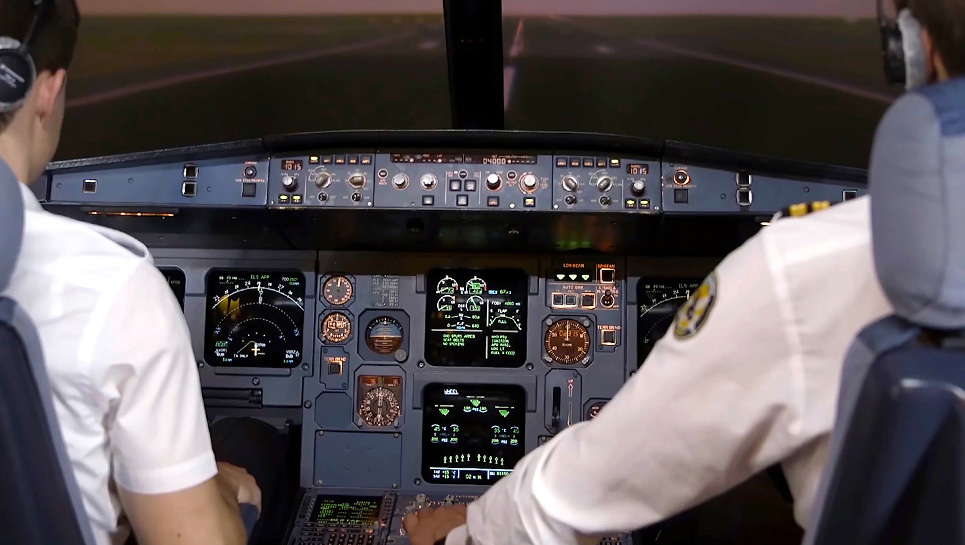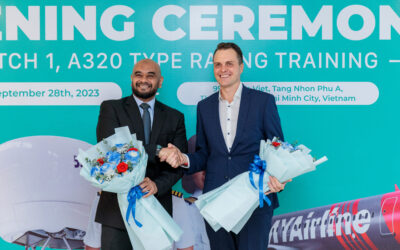Being able to deploy your instructor as a resource and mentor should be very important to any student. But to a type rating student – it is essential. Your, as a pilot’s, future depends on the level of qualification and skills gained during the pilot training. How good are you going to be once it’s finished? And more importantly, what can be done by a student in order to achieve the best results?
Even though your motivation and determination is important, let’s start from the basics – your instructor is your source of knowledge. And this simple equation – if you manage to establish good professional connection with your instructor, it is more likely, that you will easier manage to extract more knowledge: be confident and ask them questions, learn faster and receive thorough insights on your performance.
How to do that? Here are some thoughts shared by BAA Training type rating instructors.
1. First Impressions and Communication
It is highly likely that the first time you will have a proper discussion with your instructor will be either during the ground school training or right before the training, during the preflight briefing. They do say that the first impressions last, so it is best if you keep a professional and work-oriented attitude. That does not mean that it cannot grow into a more friendly relationship, but such things take time and effort. Usually, it is during lengthy sessions in a simulator where you not only train, which is undoubtedly the most important part, but also build a solid relationship with the instructor. Often training sessions take place in the evenings and sometimes, during the nighttime – everyone is tired and that mutual feeling of tiredness and accomplishment builds a connection. There is no fast way to achieve one, as empathy builds over time. So just have patience and be open to learning, be attentive and keen. Show that you have put in the extra work. Show that you have the hunger for knowledge and be prepared for the training, as that will allow the instructor to see you are prepared and willing to cooperate.
2. Fixing a Bad Start
Even though it rarely happens, sometimes the relationship between you and an instructor just does not work. It just doesn’t. Maybe the first impression was bad, maybe the instructor was in a bad mood when you first met, and maybe it was you who was in a bad mood. Unfortunately, it will affect your training, as it is based on human performance. It is only natural that you get a lot more from a person that you understand and get along with. To try and bring back a relationship to a convivial point you need to remember that the instructor is always right. He has great experience and knowledge accumulated over many years, so arguing would be imprudent. However, that does not mean you cannot disagree with him or you cannot ask questions. Do not interrupt the session, keep it going, but after it, during the debriefing, go ahead and ask all what is on your mind. It is in the instructor’s best interest to help you train and become a great pilot. Any relationship that started off on the wrong foot can be resolved through talking things over in a polite manner.
3. Prepare for Your Sessions and Ask Questions
Preparation is key – sit down in front of the procedure trainer and work together with your team, go through checklists, go through your notes – only then you will be able to ask questions. And there is no word strong enough to put emphasis on how much you need to ask questions. This is essential to students. And of course you might worry about asking a ridiculous question about the most basic thing. But we all know the saying “there are no stupid questions”. Once you sit down in a new type of aircraft, you have to go through the basics, every single detail of it. And in case you have forgotten something during your training – just ask. The answer will bring you back right on track without wasting your precious simulator training time.
4. Try to Relax
The most common issue an instructor has to encounter is a stressed student. Why are they stressed? Well, usually, students think that they are not prepared for a session. Once they get stressed, they can’t work properly and therefore, get even less prepared for upcoming sessions. Stress is a very damaging thing for your studies. You must approach everything with a calm attitude and in order to do so, you must be really prepared for the sessions.
5. Be Understanding of Your Instructor
An instructor will provide as much help as he can but take note – an instructor won’t push or provide you with too many tips if he sees that you are not ready to be under this pressure. If an instructor rushes a student too soon, he gets stressed – and then it just goes downhill from there. An instructor cannot pressure or over-help a student until he gets comfortable with the type of aircraft. Only when the instructor sees, that the student is confident and prepared enough, he can pressure and push him. All this is done to prepare them for the future, so when they actually fly an aircraft, they feel confident and calm because they have developed the skill of operating under pressure.
Wrapping things up
Your instructor is a great recourse you must deploy. They are the ones who understand what you need to do, they know your progress and they know how to help you. Their guidance is necessary to boost your confidence so that you could continue training without stress. In most cases, the instructor is on the same level as the student – they are not interested in showing off their knowledge or position. They are here to help you be your best version of yourself. Just make the effort to be prepared, ask questions and be calm.








